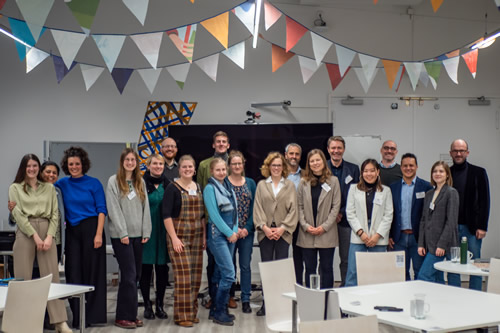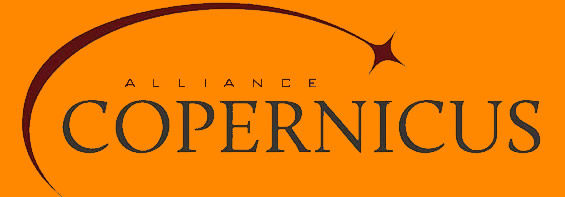 On 27 February 2024, Leuphana University Lüneburg organized a roundtable with twenty ESD stakeholders from Lüneburg and Hamburg to strengthen local cooperation on sustainability learning between the two regions. The roundtable explored strategies to seize opportunities and overcome challenges in connecting regional/local and global actions in Education for Sustainable Development (“glocalizing ESD”).
On 27 February 2024, Leuphana University Lüneburg organized a roundtable with twenty ESD stakeholders from Lüneburg and Hamburg to strengthen local cooperation on sustainability learning between the two regions. The roundtable explored strategies to seize opportunities and overcome challenges in connecting regional/local and global actions in Education for Sustainable Development (“glocalizing ESD”).
The Roundtable gathered members from the following institutions: Behörde für Umwelt, Klima, Energie und Agrarwirtschaft, Abteilung Naturschutz, City of Hamburg; German UNESCO Commission; Greenpeace Germany; Hamburg Initiative HLN-Hamburg is Learning; Heidelberg University of Education; International Sustainability Academy Hamburg; Leuphana University Lüneburg; Regional Centre of Expertise on ESD (RCE Hamburg) HAW Hamburg; Lower Saxony Regionales Landesamt für Schule und Bildung; UNESCO headquarters Paris, and Vechta University. Mark Manns from the Education for Sustainable Development Section at UNESCO shared details on the ESD for 2030 framework and the new climate change education initiative called "Greening Education Partnership".
Some of the key insights were:
- ESD priorities on the regional level in the Lüneburg-Hamburg region
Lack of clear pronouncement of absence of a ESD Master plan in the Lüneburg area compared to the Hamburg region. It was reiterated that that there is a critical need for increased coordination between various departments. A fresh insight into ESD teaching approaches is needed and the importance of acquiring financial support from local governments to implement these changes effectively. - ESD-synergies: connecting points, common purpose, and collaboration opportunities
In order to strengthen ESD cooperation in the Lüneburg and Hamburg region, we need to identify connecting points and advocate for closer integration of theory and practice-oriented research. The significance of sharing best practices and a transdisciplinary approach was highlighted towards achieving coherence and collaboration to foster meaningful ESD interventions. - Opportunities within ESD for 2030 Framework
In the broader context of UNESCO's efforts, Mark Manns from the UNESCO ESD Section elaborated upon the ESD for 2030 Framework. His presentation highlighted the work of the network encompassing regional webinars, meetings, and a global meetup. The ESD for 2030 network, conceived as a "community of practice", aims to unite member states and partners to collectively advance Education for Sustainable Development. Mark shared the ambitious plans of ESD-Net, intending to conduct additional webinars and online engagement meetings specifically tailored for European members. These sessions will serve as platforms for members to exchange perspectives and insights. Moreover, ESD-Net aims to leverage these occasions to showcase successful research and projects in the field of ESD. - Need to identify more outreach strategies to communicate with diverse audiences of ESD and engage in a lively debate about the instrumental or transformative approaches to ESD.
